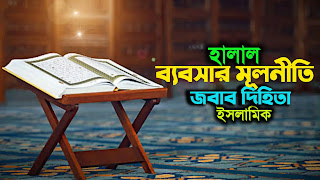HSC Suggestion 2022 Rearrange 100% common
HSC - 2022 Rearrange Suggestion
আসসালামু আলাইকুম, সবাই কেমন আছেন আশা করছি আল্লাহ্র রহমতে সবাই ভাল আছেন। আজকে আপনাদের জন্য নিয়ে আসলাম এইচএসসি ২০২২ পরিক্ষার্থীদের জন্য REARRANGE এখানে সব থেকে গুরুত্ব পূর্ণ নির্ভুল সাজেশন। আরো সাজেশন পেতে আমাদের এই ওয়েবসাইটটি ঘুরে দেখুন। এইচএসসি 2022 পরীক্ষার্থীদের জন্য আরো অন্যান্য সাজেশন পেতে নিচে কমেন্ট করুন। 100% নির্ভুল সাজেশন পাবেন। যা আপনাদের পরীক্ষায় আসার মত। এই সাজেশন অনুযায়ী আপনি পড়ালেখা করলে 100% ভালো রেজাল্ট করতে পারবেন। তো চলুন শুরু করা যাক।
০৮ টি REARRANGE এর সাজেশন দেওয়া হলো- ১০০% পরীক্ষায় আসার উপযোগী।
1.
(i) The virus is unstable and changes its variant frequently.
(ii)COVID-19 is a contagious and fatal disease.
(iii) Subsequently, WHO declared COVID-19 a pandemic on 11 March 2020.
(iv) It was caused by the SARS-CoV-2 virus.
(v) One can avoid this disease by wearing mask, washing hands with soap and water, maintaining personal hygiene and getting vaccinated.
(vi) The virus rapidly spread to all provinces in China as well as many countries overseas.
(vii) It creates panic among the people.
(viii) It was first detected in December 2019 in Wuhan, China.
Ans:------------------------------
(ii)+(iv)+(viii)+(vi)+(iii)+(i)+(vii)+(v)
COVID-19 is a contagious and fatal disease. It was caused by the SARS-CoV-2 virus. It was first detected in December 2019 in Wuhan, China. The virus rapidly spread to all provinces in China as well as many countries overseas. Subsequently, WHO declared COVID-19 a pandemic on 11
March 2020. The virus is unstable and changes its variant frequently. It creates panic among the people. One can avoid this disease by wearing mask, washing hands with soap and water, maintaining personal hygiene and getting vaccinated.
2.
(i) The king called him to the palace.
(ii) At this, the king got furious and condemned him to deathe
(iii) A good astrologer visited the capital of the king.
(iv) Once there was a king who was fond of knowing his future from the astrologer.
(v) With ready wit he said, "The stars declare that I'll die only a week before your death."
(vi) But another thought had crossed his mind before the astrologer was removed for execution.
(vii) The king then asked, "How long would you like to live?"
(viii) The astrologer told something very unpleasant.
Ans:-------------------------
(iv)+(iii)+(i)+(viii)+(ii)+(vi)+(vii)+(v)
Once there was a king who was fond of knowing his future from the astrologer. A good astrologer visited the capital of the king. The king called him to the palace. The astrologer told something very unpleasant. At this, the king got furious and condemned him to death. But another thought
had crossed his mind before the astrologer was removed for execution. The king then asked, "How long would you like to live?" With ready wit he said, "The stars declare that I'll die only a week before your death."
3.
(i) One day, a fox was very hungry.
(ii) The grapes were too high for him to reach.
(iii) Again and again he jumped. But each time, he failed to reach the grapes.
(iv) At last, he entered a vineyard.
(v) At last being tired, he went away saying that the grapes were sour.
(vi) He took a run and jumped to reach the bunch of grapes but could not reach it.
(vii) He searched for food everywhere but he did not get any food.
(iii) There were ripe grapes hanging up on the vine.
Ans:--------------------
(i)→(vii)→(iv)→(viii)→(ii)→(vi)→(iii)→(v)
One day, a fox was very hungry. He searched for food everywhere but he did not get any food. At
last, he entered a vineyard. There were ripe grapes hanging up on the vine. The grapes were too high for him to reach. He took a run and jumped to reach the bunch of grapes but could not reach it. Again and again he jumped. But each time, he failed to reach the grapes. At last being tired, he
went away saying that the grapes were sour.
4.
(i).The last words of the speech are: "Government of the people, by the people, for the people shall not perish from the earth."
(ii) Abraham Lincoln was the President of the United States of America.
(iii) On the 10th of November 1863, a railway train was carrying him to a place called Gettysburg,
(iv) It is one of the finest and the shortest speeches in the English language..
(v) He was going there to speak at a meeting.
(vi) On the envelope, it was what he was going to say at the meeting.
(vii) In the train, he was busy writing something on the back of an envelope.
(viii) In fact, the speech on the envelope is now famous as "Gettysburg Address".
Ans:---------------------------
(ii)→(iii)→(v)→(vii)→(vi)→(i)→(viii)→(iv)
Abraham Lincoln was the President of the United States of America. On the 10th of November 1863, a railway train was carrying him to a place called Gettysburg. He was going there to speak at a meeting. In the train, he was busy writing something on the back of an envelope. On the envelope, it was what he was going to say at the meeting. The last words of the speech are: "Government of the people, by the people, for the people shall not perish from the earth." In fact, the speech on the envelope is now famous as "Gettysburg Address". It is one of the finest and the shortest speeches in the English language.
5.
(i) He died on August 29, 1976 and was buried on the compound of Dhaka University.
(ii) He wrote a lot of poems, songs, ghazals, short stories, novels, etc.
(iii) He lost his father at the age of eight and at the age of eleven, he showed his poetic genius.
(iv) At the age of nineteen, he joined the Army as an ordinary soldier to fight in the First World War.
(v) On his return from the battlefield, he gave up the sword for the pen.
(vi) It was tragic that he had been suffering from a cruel disease since 1942 and remained paralyzed for the rest of his life.
(vii) He was brought to Bangladesh from Kolkata in 1972 and was declared our national poet by the Government of Bangladesh.
(viii) Kazi Nazrul Islam was born in 1899 in the district of of Burdwan in West Bengal.
Ans:----------------------
(viii) (iii)→(iv)→(v)→(ii)→(vi)→(vii)→(i)
Kazi Nazrul Islam was born in 1899 in the district of Burdwan in West Bengal. He lost his father at the age of eight and at the age of eleven, he showed his poetic genius. At the age of nineteen, he joined the army as an ordinary soldier to fight in the First World War. On his return from the battlefield, he gave up the sword for the pen. He wrote a lot of poems, songs, ghazals, short stories,
novels, etc. It was tragic that he had been suffering from a cruel disease since 1942 and remained paralyzed for the rest of his life. He was brought to Bangladesh from Kolkata in 1972 and was declared our national poet by the Government of Bangladesh. He died on August 29, 1976 andwas buried on the compound of Dhaka University.
6.
(i) During his stay, he received an unpaid letter from his friend, which contained nothing but some words.
(ii) With a great hope in mind, he opened the box and found nothing but an ordinary stone.
(iii) He wanted to teach his friend a good lesson.
(iv) An English poet was staying in Italy for the benefit of his health.
(v) So, he procured a heavy stone and packed it up in a fine box.
(vi) His friend thought that the contents of the parcel were valuable, so, he paid the heavy charge for carrying.
(vii) The poet had to pay double postage, so, he became very annoyed.
(viii) Then he sent it to his friend with the words on it, "Carriage to be paid on delivery".
Ans:------------------------------------
(iv)→(i)→(vii)→(iii)→(v)→(viii)→(vi)→(ii)
An English poet was staying in Italy for the benefit of his health. During his stay, he received an unpaid letter from his friend, which contained nothing but some words. The poet had to pay, double postage, so, he became very annoyed. He wanted to teach his friend a good lesson. So, he procured a heavy stone and packed it up in a fine box. Then he sent it to his friend with the words on it, "Carriage to be paid on delivery". His friend thought that the contents of the parcel were
valuable, so, he paid the heavy charge for carrying. With a great hope in mind, he opened the box
and found nothing but an ordinary stone.
7.
(i) All the servants were called and interrogated. But nobody confessed their guilt.
(ii) In order to find out the thief, the judge chalked out an intelligent plan.
(iii) Once a gold necklace was lost from a rich man's house.
((iv) When the servants came to the court the next day, the thief had already cut off an inch of his stick.
(v) So, the owner of the house lodged a complaint in the court.
(vi) The judge found one of the sticks shorter than the others and in this way, he could easily catch the thief.
(vii) Naturally, it was suspected that one of the servants had stolen the necklace.
(viii) He gave each of the suspects a stick of equal length and said that one of the sticks would increase by an inch the next day.
Ans:--------------------------------
(iii)→(vii)→(i)→(v)→(ii)→(viii)→(iv)→(vi)
Once a gold necklace was lost from a rich man's house. Naturally, it was suspected that one of the servants had stolen the necklace. All the servants were called and interrogated. But nobody confessed their guilt. So, the owner of the house lodged a complaint in the court. In order to find out the thief, the judge chalked out an intelligent plan. He gave each of the suspects a stick of
equal length and said that one of the sticks would increase by an inch the next day. When the servants came to the court the next day, the thief had already cut off an inch of his stick. The judge found one of the sticks shorter than the others and in this way, he could easily catch the thief.
8.
(i) He showed extraordinary credit in every examination of the school.
(ii) He has made great contribution to the scientific research of Bangladesh.
(iii). Dr. Md. Qudrat-i-Khuda was born on 8 May at village Margram in the district of Birbhum in West Bengal in 1900 AD.
(iv). In 1924, getting star marks he passed MSc in Chemistry from Kolkata Presidency College.
(v) He died on 3 November 1977.
(vi) In 1929, he passed DSc from Imperial College in England.
(vii) At the age of six, he was admitted into a Furkania Madrasa and then he was admitted into an English school.
(viii) In 1952, he was appointed Chairman of Secondary Education Board.
Ans:----------------
(iii)→(vii)→(i)→(iv)→(vi)→(ii)→(viii)→(v)
Dr. Md. Qudrat-i-Khuda was born on 8 May at village Margram in the district of Birbhum in West Bengal in 1900 AD. At the age of six, he was admitted into a Furkania Madrasa and then he was admitted into an English school. He showed extraordinary credit in every examination of the
school. In 1924, getting star marks, he passed MSc in Chemistry from Kolkata Presidency College. In 1929, he passed DSc from Imperial College in England. He has made a great contribution to the scientific research of Bangladesh. In 1952, he was appointed Chairman of the Secondary Education Board. He died on 3 November 1977.
আশা করি এই পোস্ট টি আপনাদের কাছে অনেক ভালো লেগেছে। ভালো লেগে থাকলে অবশ্যই কিন্তু কমেন্ট করে জানাবেন। আর এরকম সব পোস্ট পেতে প্রতিদিন ভিজিট করতে থাকুন আমাদের এই ওয়েব সাইট টি। আবার দেখা হবে পরবর্তী কোনো পোস্ট এ। সে পর্যন্ত সকলে ভালো থাকুন সুস্থ থাকুন। আল্লাহ হাফেজ।







